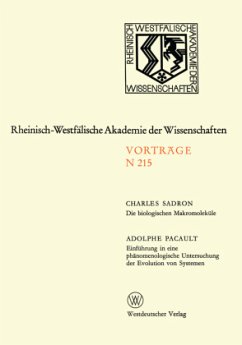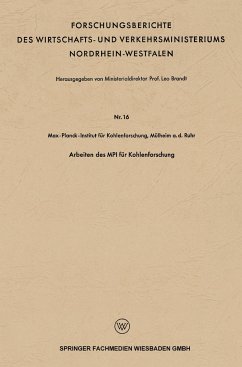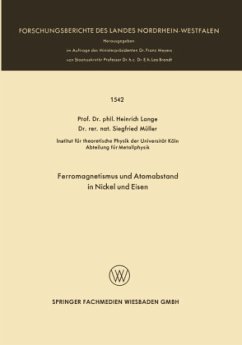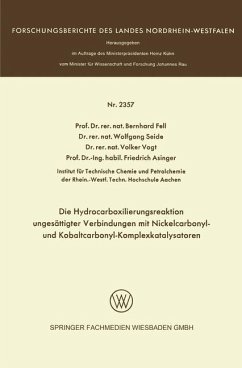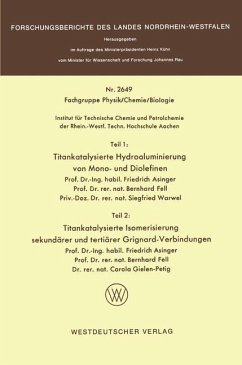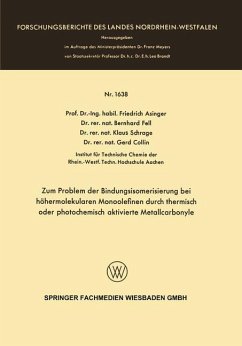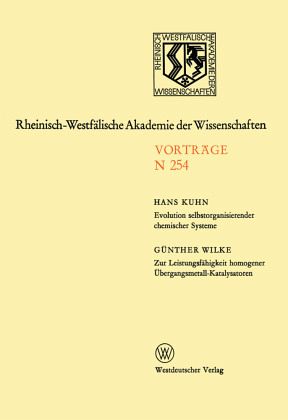
Evolution selbstorganisierender chemischer Systeme. Zur Leistungsfähigkeit homogener Übergangsmetall-Katalysatoren
218. Sitzung am 3. Oktober 1973 in Düsseldorf

PAYBACK Punkte
0 °P sammeln!
In an attempt to understand the origin of living systems we encounter the following problems: a) How can we conceive the origin of the first self-reproducing forms, and by means of what stimuli could commence a constant increase in the complexity of such forms? b) How can a translation apparatus for genetic information develop? One cannot imagine that such an apparatus for the synthesis of en zymes can function alone without the interference of enzymes them selves, which, however, could only become available after the construc tion of the apparatus itself. c) What stimulus mechanism is conceiv...
In an attempt to understand the origin of living systems we encounter the following problems: a) How can we conceive the origin of the first self-reproducing forms, and by means of what stimuli could commence a constant increase in the complexity of such forms? b) How can a translation apparatus for genetic information develop? One cannot imagine that such an apparatus for the synthesis of en zymes can function alone without the interference of enzymes them selves, which, however, could only become available after the construc tion of the apparatus itself. c) What stimulus mechanism is conceivable, that leads to the division of the genetic apparatus into a duplication system and an enzyme synthesis system? The main problem therefore is not the search for basic theoretical concepts. It is not a question which can be answered by means of a specific experiment. One should rather explore the principal possibilities of how molecules combine to produce more and more complicated func tional units. In trying to solve the puzzle of how the genetic apparatus is gradually built up as a complex aggregate of molecules one can draw up specific Denkmodels.




